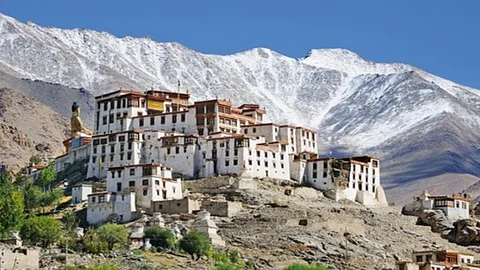

In a major development aimed at safeguarding the unique cultural and administrative interests of Ladakh, the Union government has notified several significant rules for the Union Territory (UT). The new regulations include reservation up to 85%, a 15-year residency requirement for domicile status, one-third reservation for women in hill councils, and recognition of five official languages.
These measures come after months of protests by local groups demanding stronger protections and represent the most substantial policy update since Ladakh was declared a UT in August 2019 following the bifurcation of Jammu and Kashmir.
Key Highlights of the New Rules:
Reservation Policy:
The total reservation in jobs is capped at 85%, excluding economically weaker sections. This includes 80% for Scheduled Tribes (STs), 4% for residents near the Line of Actual Control and Line of Control, 1% for Scheduled Castes (SCs), and 10% for Economically Weaker Sections. Initially, a 95% reservation for locals was proposed.
Domicile Criteria:
To qualify as a domicile of Ladakh, individuals must have either resided in the UT for at least 15 years, or studied there for seven years and appeared in Class 10 or 12 exams within the territory. Children of central government employees and others who have served 10 years in Ladakh are also eligible.
Women’s Quota in Hill Councils:
At least one-third of seats in the Ladakh Autonomous Hill Development Councils of Leh and Kargil are now reserved for women, with seat rotation among constituencies to ensure fair representation.
Official Languages:
The UT has recognized English, Hindi, Urdu, Bhoti, and Purgi as official languages. The administration will promote other native tongues such as Shina, Brokskat, Balti, and Ladakhi.
Background and Context:
Since Ladakh’s formation as a Union Territory post the abrogation of Article 370, the region has witnessed repeated protests demanding statehood, special constitutional safeguards, and protections for local culture and employment. The Union Home Ministry had constituted a high-powered committee in 2023, including representatives from local trade unions, religious groups, and political bodies, to draft these rules.
Environmental activist Sonam Wangchuk and other leaders played key roles in keeping dialogue alive during protests, which included a 66-day shutdown and hunger strikes in 2024.
Local Reactions:
Sajjad Kargili, a panel member and Kargil leader, called the notifications “a positive step” toward fulfilling government assurances and boosting employment opportunities for Ladakhi youth. However, discussions on further demands such as a separate public service commission, statehood, and inclusion under the Sixth Schedule will continue.
(This story is published from a syndicated feed)